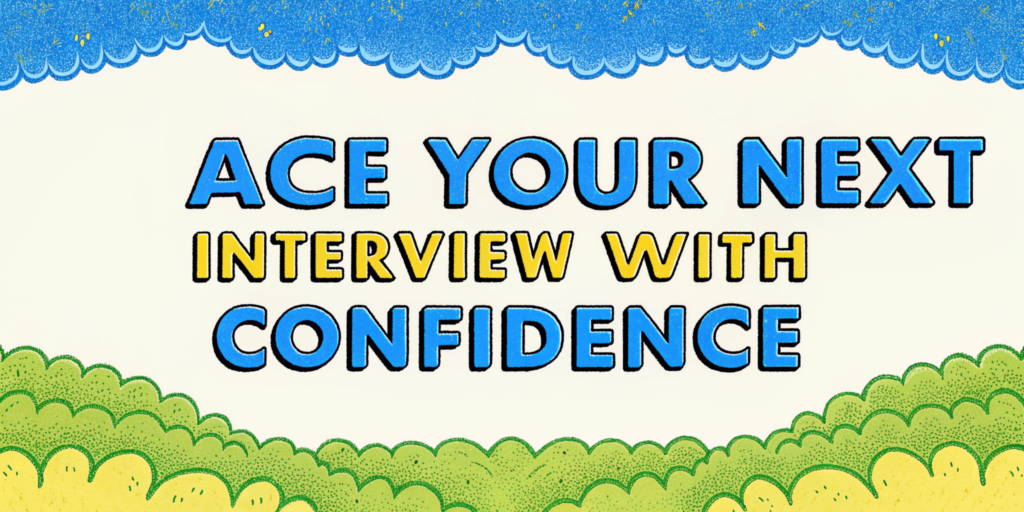Building trust during a job interview is not just about answering questions—it’s about forming a connection. But how do you get a complete stranger, like an interviewer or a hiring panel, to trust you in just an hour or two? It’s not as daunting as it sounds. Trust comes down to integrity, communication, and your ability to resonate through authenticity. This article sheds light on actionable methods to build trust using real examples and practical techniques to ace a “building trusting relationships interview question.”
Let’s dive into trust-building methods that resonate and help secure that job offer faster. 😊
Why Trust Matters in Interviews
When hiring managers conduct interviews, they’re not just scouting for skills—they’re assessing if they can trust you. This is a critical component of the hiring process.
Trust isn’t a checkbox—it permeates everything: from the way you speak, share your professional anecdotes, to how consistent your facts are. Employers often visualize onboarding as a choice between a low-risk, trustworthy candidate and someone uncertain.
💡 Fun fact: Studies reveal that almost 85% of hiring decisions are influenced by the perceived trustworthiness and cultural fit of a candidate. Employers want to believe in you!
Let’s break this down: how can you enable them to trust you immediately?
Key Strategies to Build Trust in Interviews
1. Highlight Integrity in Past Roles
The quickest way to build trust? Talk about your integrity. Interviewers want to know you’ll do the right thing even when no one’s looking.
Example:
When asked, “Can you share a time you handled an ethical dilemma?” ensure your response outlines decisions steeped in honesty. A great response would follow the STAR Method:
- Situation: “In my previous role as a Customer Success Manager, a client requested a workaround that violated company policy.”
- Task: “I needed to ensure the relationship stayed strong while maintaining compliance.”
- Action: “I offered alternative solutions that adhered to policy but still solved their issue.”
- Result: “The client thanked me for my honesty, and our team retained the account for another three years with increased satisfaction rates.”
💡 Sharing real, tangible examples builds credibility and shows reliability.
2. Ask Engaging Questions
Building trust is a two-way street. The more engaging your questions, the stronger rapport you can establish. Questions create dialogue, and dialogue builds connection and authenticity.
Questions to Ask:
| Who | Example Question | Why It Works |
|---|---|---|
| Interviewers | “What do you value most in team collaborations?” | Shows genuine interest in their views. |
| Team Peers | “Can you share how your team celebrated success?” | Builds rapport and openness. |
| Stakeholders | “How do you see this role impacting business goals?” | Reflects alignment with their values. |
💡 People trust those who genuinely care to listen. It positions you as an empathetic connector, ideal for most professional environments.
3. Show Transparency Through Honesty
Honesty always wins. It’s tempting to embellish your resume, but even one small inconsistency—or evasive response—can erode trust.
For example, when answering the classic “What are your weaknesses?” question:
- Instead of retreating with fluff responses like, “I care too much about work” or “I’m a perfectionist,” share a growth-oriented truth.
✍️ “I sometimes delay delegation, as I feel I can complete tasks faster myself. But I’ve been proactively improving by assigning one task weekly to teammates and giving feedback to nurture their abilities.”
💡 Even perceived “flaws” can work for you if articulated with self-awareness and positivity.
How to Master Trust-Building Relationship Questions
When asked a direct question like, “How do you build relationships with customers, peers, or stakeholders?” you’ll need examples that reveal:
- Active listening
- Consistency
- Adaptability
STAR Method Examples
- For Peers:
🗣️ “Onboarding a new team member, I learned their background in analytics. I collaborated with them to integrate fresh reporting techniques, creating better workflows. This demonstrated trust in their skills early on.” - For Stakeholders:
🗣️ “In a marketing pitch, I customized each proposal aspect to match stakeholders’ needs, sought their feedback beforehand, and increased buy-in by 34% quarterly.”
💡 Golden Tip: Always ground your examples in measurable outcomes to amplify your credibility.
Common “Trust Questions” and How to Answer Them
Below are frequently asked relationship-building interview questions (source: Reddit forums and Ninjafy AI candidates):
| Question Prompt | Example Response |
|---|---|
| “Describe a time you disagreed with a coworker.” | ✍️ “I was once aligned on solving a logistical issue differently than my manager. I proposed my alternative but stayed open to feedback. Ultimately, we combined our ideas for faster implementation.” |
| “How do you build relationships with customers?” | ✍️ “By prioritizing honesty. For example, I once corrected a wrong deliverable upfront, which strengthened trust, and that client renewed their $X contract every cycle since.” |
| “What makes you reliable on a team?” | ✍️ “I’m consistent—I follow through on deadlines, clearly communicate updates, and ensure teammates know I’ve got their back. In one instance, I stepped in for a sick colleague to mitigate missed project goals.”* |
💡 Practice! Platforms like Ninjafy AI offer mock interviews tailored to trust-building scenarios.
Ninjafy AI: Your Interview Prep Companion
The challenge isn’t just about what to say but how to deliver it under pressure. That’s where Ninjafy AI shines.
I recently used their Industry Brain feature while preparing for a stakeholder-heavy role. It trained me for questions like, “How do you build cross-functional trust in projects?” by analyzing my resume. What stood out? The system provided frameworks tailored specifically for the consulting industry, helping me structure answers authentically.
Why Ninjafy AI Works:
✔️ Personalization: Answers reflect your career experiences.
✔️ Confidence Boost: InvisibleEyetrack™ aligns your delivery effortlessly for Zoom interviews.
✔️ Fast Learning: Mock interviews emulate high-pressure scenarios.
👉 39% of Ninjafy users received dream job offers—don’t leave trust-building to chance! Try it here.
Conclusion: Building Lasting Impressions
Building trust isn’t about big gestures or memorized pitches. It’s the small, consistent ways you communicate honesty, listen actively, and share relatable experiences that set you apart.
When recruiters think, “Can I trust them with our team goals?” your actionable examples, integrity-driven approach, and thoughtful dialogue will leave them saying, yes.
So go ahead—tackle those building trusting relationships interview question scenarios with newfound confidence. Begin with preparedness, follow through with authenticity, and you’ll ace it every time. 🚀



